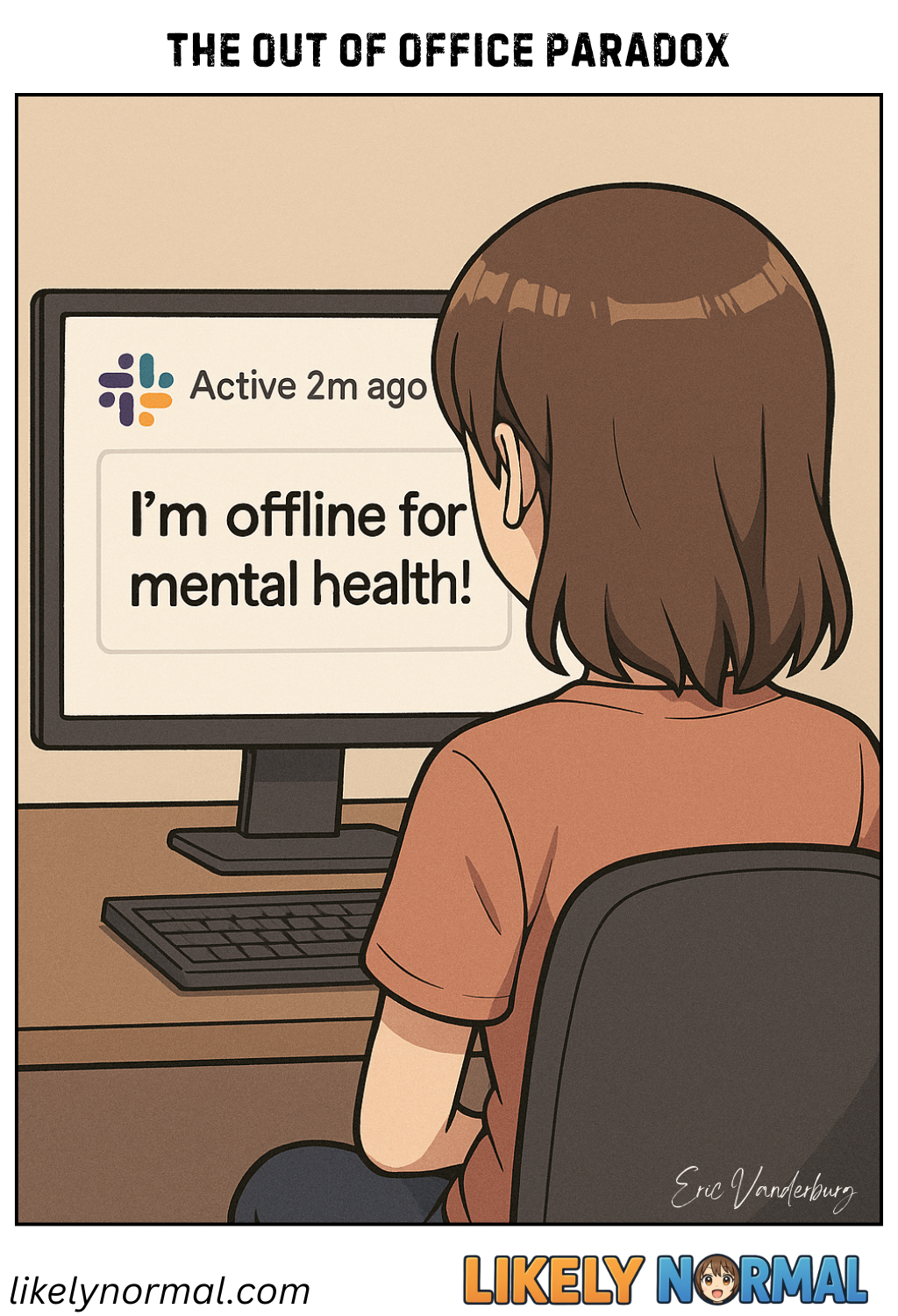The Out of Office Paradox
In the modern workplace, you can call in sick with a dramatic, cough-laden voicemail, only to be immediately betrayed by the blinking green dot next to your name on Slack that screams “LIAR!” to the entire company. Messaging platforms have become the ultimate tattletales, exposing our every move with the subtlety of a fireworks display. Forget alibis; if your status says “Active,” you might as well have posted a selfie from your couch captioned “Playing hooky like a boss.”
The system is rigged. You try to sneak in a midday nap, but Slack’s “Away” timer kicks in after precisely 10 minutes of inactivity, leaving a digital paper trail that reads: “Last seen today at 2:37 PM—probably sleeping.” You switch your status to “In a meeting” to dodge your boss, only to accidentally click a link that sends a “typing…” notification, instantly revealing your deception. Even “Out sick” is a gamble—because if you dare to check a single message, your status flips back to “Active,” broadcasting to the world that your “migraine” miraculously vanished the second someone asked “Hey, can you quick fix this thing?”
Then there’s the ultimate humiliation: the “Online at 3 AM” badge. You wake up to pee, idly check your phone, and suddenly your entire team knows you were scrolling Slack in the dark like a sleep-deprived gremlin. The next morning, you’re met with a chorus of “Rough night?” and “Saw you were up late—everything okay?” No, Brenda, everything is not okay. The robots are judging me.
The worst part? No one believes the “glitch” excuse anymore. “Oh, Slack must’ve shown me as online while my laptop was closed!” Nice try. We all know you were secretly working from the beach.
In the end, these statuses aren’t just indicators—they’re confessions. So the next time you’re “Out sick,” remember: The only way to win is to fully commit. Throw your phone in a lake, burn your laptop, and flee to a cabin with no Wi-Fi. Otherwise, that little green dot will snitch on you faster than a coworker angling for a promotion.

Discussion ¬